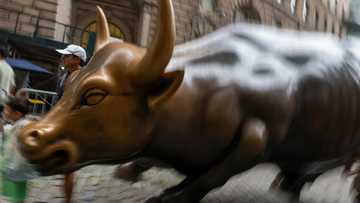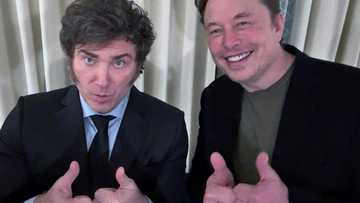High costs, slowing China: VW's perilous road ahead
After Volkswagen's bombshell announcement earlier this month that it could close factories in Germany for the first time, company management and unions will begin tense talks on a new pay deal Wednesday.
Don't miss out! Get your daily dose of sports news straight to your phone. Join YEN's Sports News channel on WhatsApp now!
Here are some of the key challenges facing Europe's biggest car maker:
High costs
Volkswagen has repeatedly stressed that its costs are excessive and profit margins too low, particularly at its core VW brand.
Production costs in Germany are "clearly too high", said a leaflet from VW's management distributed to the workforce at several sites in the country ahead of the talks.
"We have to increase our productivity. We have to reduce our labour costs."
All areas would be examined -- from development, to manufacturing and distribution -- when it comes to cost-cutting, VW group CEO Oliver Blume told public broadcaster ZDF in an interview this week.
High electricity prices, which have risen since the energy crisis triggered by the Ukraine war, as well as elevated labour costs are a significant challenge for the 10-brand group in its home market.
Stefan Bratzel, a German automotive expert, told AFP that VW needs to become "much leaner", as the company has "too many employees who don't work hard enough and too many committees".
Last year the flagship brand sold 2.52 million vehicles with 200,000 employees worldwide, including 120,000 in Germany.
In contrast, Japanese rival Toyota produced almost four times as many vehicles, 9.5 million, with barely twice as many employees.
China challenge
Volkswagen -- whose brands range from Skoda and Seat to Porsche and Audi -- makes around a third of its sales in China, the world's biggest auto market, but has been losing ground in recent times.
It has three joint ventures in the world's second biggest economy, about 90,000 employees and 39 plants manufacturing vehicles and components.
According to the Rhodium Group, a US think-tank focused on China, Volkswagen was the biggest European investor in the country in 2021.
But it has been hard hit by China's economic slowdown coupled with fierce competition from local rivals, particularly when it comes to electric vehicles.
Chinese EV manufacturers, such as BYD, have captured market share with top-selling models packed with technology that appeal to local customers while VW has struggled with a troubled transition to electric cars.
Bloomberg reported last week that VW and one of its joint venture partners plan to close one plant in China and possibly more as sales of combustion-engine cars fall. VW refused to comment on the report.
Blume recognised the group's problems in China, saying: "The cake has become smaller, and we have more guests at the table."
Strong links to the state
Politics has played a key role at Volkswagen for decades. The state of Lower Saxony -- home to VW's historic Wolfsburg headquarters and several factories -- holds 20 percent of the group's voting shares.
This means it has a blocking minority, allowing it to stop key decisions.
This "hampers the company's ability to adapt" and means it functions as "a state-owned company", according to automotive expert Ferdinand Dudenhoeffer.
In addition employee representatives sit on the supervisory board, and wield a veto over the creation and relocation of production sites.
It is also almost impossible to close plants against their will.
Troubled electric transition
VW has poured huge sums into its EV shift but the transition has been troubled.
It has launched the ID range of cars, such as the ID.3, but the vehicles have experienced problems with their software.
Former VW CEO Herbert Diess has been criticised for the development of software in-house via subsidiary Cariad, with observers saying the project was costly and botched, and has left the German group lagging behind.
It is hoping to turn around its fortunes with a $5 billion investment in US electric vehicle maker Rivian to create a joint venture, a deal that was announced in June.
jpl-sr/jsk/cw
© Agence France-Presse
New feature: Сheck out news that is picked for YOU ➡️ click on “Recommended for you” and enjoy!
Source: AFP





